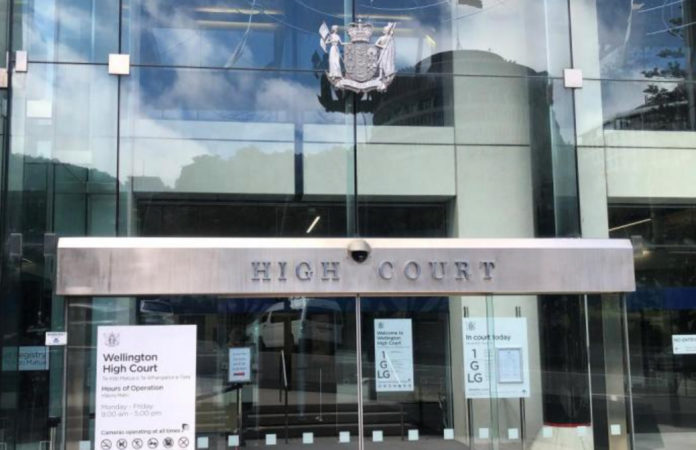The concerns of three Local Authorities about the Government’s Three Water reforms process will begin being heard in the Wellington High Court today.
Timaru, Waimakariri and Whangarei District Councils are asking the High Court for declarations on the rights and interests that property ownership entails.
The Councils say they have taken the court action to defend fundamental property rights.
“The councils are seeking legal clarity on these matters as their view is that under the Government’s Three Waters reform proposals, it is expropriating council owned property without conceding that it is a “taking”, and without fair compensation being paid to communities for their property,” they said in a statement.
Additionally, the Government’s proposals remove local democratic accountability associated with the management of those water assets, the Councils assert.
Mayors Nigel Bowen, Dan Gordon and Sheryl Mai are taking the action on behalf of their communities, as they contend that the reforms are incompatible with long standing and fundamental laws around property ownership and democratic accountability.
The hearing dates have been set down for 7 and 8 June.

Timaru District Mayor, Nigel Bowen says the case is far bigger than just the Three Waters reform, saying it could have “serious ramifications for owners of any property”.
“Property rights are absolutely fundamental in New Zealand,” he said.
“If you’ve bought and paid for something you should have reasonable control over it, and a legitimate expectation that it will not be expropriated without compensation. As owners on behalf of the community of this critical infrastructure we want to ensure that any future changes respect these basic rights.

“While Three Waters reform prompted this action, what we’re talking about here concerns some really basic and fundamental rights that most people ordinarily would take for granted and normally wouldn’t be up for discussion or even be a source of contention.
“The fact the government are seeking to undermine basic property rights sets a risky precedent for New Zealand.
“We don’t believe that concepts such as collective ownership with no control of assets and “shares” that don’t deliver any of the usual rights or obligations that go with equity ownership, are in line with existing property rights and laws.
“If this goes unchallenged the simple line to draw is that if the Government can single-handedly redefine ownership of three waters infrastructure in this manner, than where else could it apply these concepts? Could roads or port companies be next?

“That the government is working so hard to dismiss this case and undermine these basic property rights should be a red flag and a real concern for all New Zealanders,” Mayor Bowen said.
The three Councils are seeking declarations that:
A. Local government is an important and longstanding component of the democratic governance of New Zealand.
B. Important and longstanding principles and features of the democratic governance of New Zealand at local community level include the following:
- local infrastructure assets are owned and/or controlled, and related services are provided, by local Councils (“local councils”);
- local councils are responsive/and democratically accountable to their communities for their ownership, stewardship and decision-making in relation to local infrastructure assets and related services;
- local councils owe fiduciary-like obligations to their communities; and
- local government infrastructure assets have generally been wholly or materially funded as a result of rates or charges or rentals paid by generations of persons (including businesses) located in their communities.
C. The Councils’ rights of ownership in relation to infrastructure assets include the following:
- the exclusive ability to prevent others from interfering with such assets;
- the exclusive possession or control of such assets;
- the exclusive ability to manage and operate, and/or enter into contracts in relation to, such assets;
- the exclusive ability to modify or replace the assets (and to dispose of redundant or surplus assets);
- the exclusive ability to use such assets as security for borrowing; and
- the exclusive entitlement to receive full, fair and objectively and independently assessed compensation for any infrastructure assets removed by legislation from the ownership (in particular, the rights of ownership outlined in (a)-(e), above) of such assets.



